★★★
“Cowgirls behind bars.”
 Well, this is certainly the first film I’ve reviewed here which drops both into the “women in prison” and the “sports” category. It takes place in Oklahoma, where since 1940, they have been staging an annual prison rodeo event in McAlester. The competition takes place in an arena built just inside the walls of the State Penitentiary, and includes competitors from facilities across the state. In 2006, the event was opened to female inmates as well, and this documentary (while not absolutely focused on just the women, also including 13-year rodeo veteran and convicted murderer Liles) is about their preparation for the 2007 event, training on a rig pulled back and forth by fellow inmates, and climaxing with the event itself.
Well, this is certainly the first film I’ve reviewed here which drops both into the “women in prison” and the “sports” category. It takes place in Oklahoma, where since 1940, they have been staging an annual prison rodeo event in McAlester. The competition takes place in an arena built just inside the walls of the State Penitentiary, and includes competitors from facilities across the state. In 2006, the event was opened to female inmates as well, and this documentary (while not absolutely focused on just the women, also including 13-year rodeo veteran and convicted murderer Liles) is about their preparation for the 2007 event, training on a rig pulled back and forth by fellow inmates, and climaxing with the event itself.
What stood out in particular was how normal most of the inmates seemed, though my perceptions there were likely skewed by the more, ah, dramatic depictions of life behind bars. You’d be hard pushed to pick the likes of Brooks, Witte and Herrington out of a line-up at the local PTA, though some of the stories they tell are startling – as much for the casual air with which they admit to dealing drugs or violent robbery. The rodeo gives them a bit of relief from the crushing boredom of life inside, though it’s very much a privilege. Brooks is kicked off the squad when caught in possession of contraband, reportedly unauthorized lipstick, an incident which also puts her release on parole in doubt.
While regular rodeo typically limits female involvement to the less dangerous events, such as barrel racing, there’s no such restriction here. The women inmates take part in bull and bronco riding, as well as the particularly fraught event called “Money the Hard Way”, where the first person to pluck a ribbon tied to a bull’s head wins $100. The beast is clearly no respecter of the fairer sex, sending both men and women into the air with a strictly gender-neutral approach. The comparisons of the event to gladiatorial combat seemed particularly apt here. Yet this feels more like a backdrop to the lives of the prisoners, and I found myself Googling their names in hopes of recent updates.
As with most documentaries, it’s not tidy, with loose ends a-plenty, and if I was both informed and reasonably entertained, I can’t say I reached the end with any life-changing revelations. It feels quite “safe” and conventional as a film of its genre, and Beesley clearly is not interesting in challenging narratives, least of all the self-reported ones of the women’s lives. While they do largely accept responsibility for their crimes, it’d be interesting to hear an outside perspective on those. Not mentioned in the film: the event was canceled in 2010 due to a state budget shortfall. It hasn’t returned since, mostly because the arena has now fallen into disrepair, despite support from the warden, local community and state governor for that. Whether it ever will is uncertain, leaving the documentary a record of an odd slice of Americana that may be forever gone.
Dir: Bradley Beesley
Star: Jamie Brooks, Brandy Witte, Danny Liles, Crystal Herrington





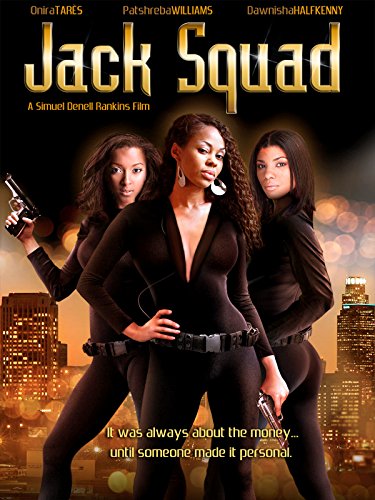 At 85 minutes, this might have been fine. For it’s a fairly simple tale, of three women who decide to escape their financial woes by drugging and robbing married men, banking on their victims not being willing to involve the authorities. While this initially works as planned, inevitably, they end up targeting the wrong guy, a minion of feared drug dealer Grey (Anderson). How evil is he? Grey appears to have an employee whose full-time job is to fan him. That’s some Evil Overlord style, right there. Grey doesn’t just want his stolen money back, he wants the trio to continue their activities – for his benefit. And that isn’t the only problem which the trio face, with Tony, the estranged other half of Dawn (Tares), unhappy at her having escaped their abusive relationship.
At 85 minutes, this might have been fine. For it’s a fairly simple tale, of three women who decide to escape their financial woes by drugging and robbing married men, banking on their victims not being willing to involve the authorities. While this initially works as planned, inevitably, they end up targeting the wrong guy, a minion of feared drug dealer Grey (Anderson). How evil is he? Grey appears to have an employee whose full-time job is to fan him. That’s some Evil Overlord style, right there. Grey doesn’t just want his stolen money back, he wants the trio to continue their activities – for his benefit. And that isn’t the only problem which the trio face, with Tony, the estranged other half of Dawn (Tares), unhappy at her having escaped their abusive relationship.
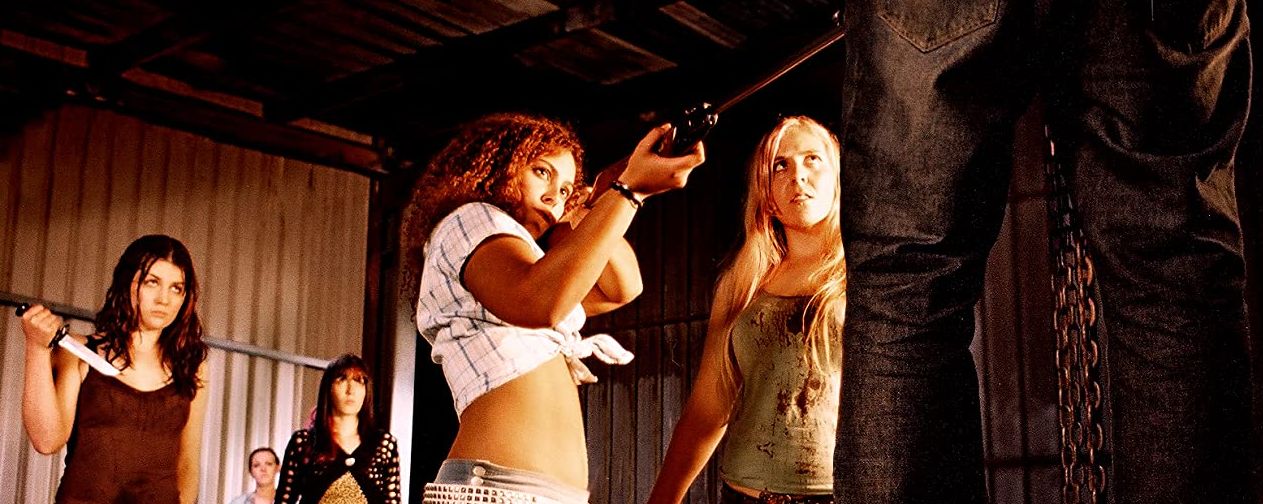 ★★★½
★★★½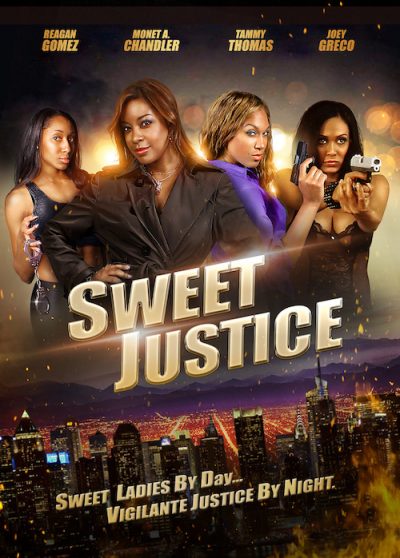 Four women run a charitable agency in Texas, helping single mothers track down and obtain child support payments from deadbeat dads. However, they don’t limit themselves to the simple serving of legal papers. The women adopt a more… hands-on approach, shall we say, first luring their targets in with the promise of sex, then threatening them at gunpoint, to make sure they pay up. For obvious reasons, the cops soon take interest in this string of unusual armed robberies. Meanwhile, the city’s white mayor, is dealing with a domestic crisis of her own, thanks to her daughter having had a child by (gasp!) a black man.
Four women run a charitable agency in Texas, helping single mothers track down and obtain child support payments from deadbeat dads. However, they don’t limit themselves to the simple serving of legal papers. The women adopt a more… hands-on approach, shall we say, first luring their targets in with the promise of sex, then threatening them at gunpoint, to make sure they pay up. For obvious reasons, the cops soon take interest in this string of unusual armed robberies. Meanwhile, the city’s white mayor, is dealing with a domestic crisis of her own, thanks to her daughter having had a child by (gasp!) a black man. Even if the film doesn’t quite live up to the title and poster, it turned out to be better than I expected… from the title and poster, to be honest. It has been my experience that, the more lurid the advertising, the more disappointed I’m likely to be. Films like this often don’t just fail to deliver on what they promise, they also struggle with basic aspects of film-making, like plot and characterization, providing a double-whammy of failure. While the former is true here (no-one, at any point, is
Even if the film doesn’t quite live up to the title and poster, it turned out to be better than I expected… from the title and poster, to be honest. It has been my experience that, the more lurid the advertising, the more disappointed I’m likely to be. Films like this often don’t just fail to deliver on what they promise, they also struggle with basic aspects of film-making, like plot and characterization, providing a double-whammy of failure. While the former is true here (no-one, at any point, is 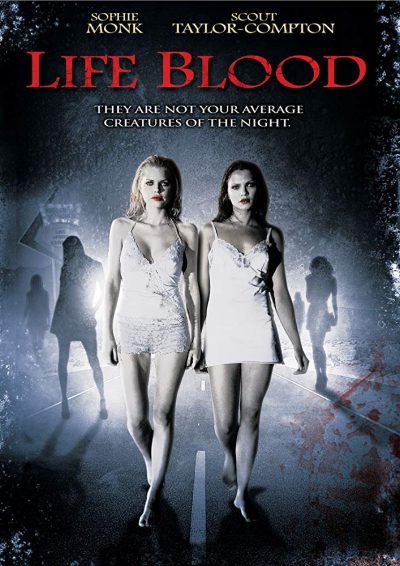 There’s a fascinating idea at the core here. Namely, that vampires were created by God, in order to mitigate mankind’s sin by preying on the most evil examples of humanity. They’re effectively angelic enforcers. The potential in this is great. The execution, however… Well, it largely comes down to two such vampire/angels sitting around a gas station for the majority of the running time. This isn’t the only aspect which is poorly considered. It starts in 1969, when lesbian couple Brooke (Lahiri) and Rhea (Monk) are at a New Year’s party. Brooke kills a rapist, stabbing him (literally) 87 times, and the pair then flee. In the desert, they are visited by God (model Angela Lindvall), who makes Rhea into one of her enforcers.
There’s a fascinating idea at the core here. Namely, that vampires were created by God, in order to mitigate mankind’s sin by preying on the most evil examples of humanity. They’re effectively angelic enforcers. The potential in this is great. The execution, however… Well, it largely comes down to two such vampire/angels sitting around a gas station for the majority of the running time. This isn’t the only aspect which is poorly considered. It starts in 1969, when lesbian couple Brooke (Lahiri) and Rhea (Monk) are at a New Year’s party. Brooke kills a rapist, stabbing him (literally) 87 times, and the pair then flee. In the desert, they are visited by God (model Angela Lindvall), who makes Rhea into one of her enforcers.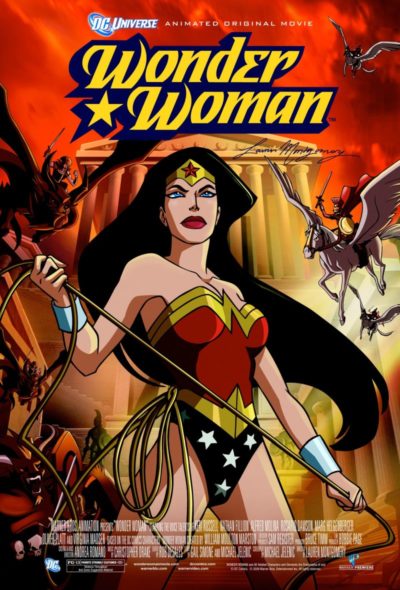 Often forgotten in the critical acclaim for the
Often forgotten in the critical acclaim for the 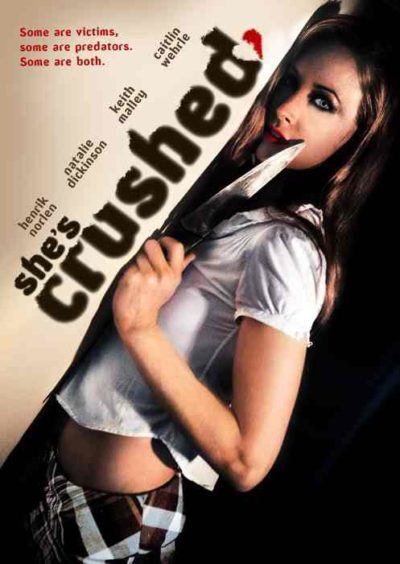 Playing somewhat like a more brutal version of Fatal Attraction, this sees Ray (Norlén) help out the girl next door, Tara (Dickinson) with some heavy suitcases she’s trying to move into her car. From this eventually stems a one-night stand between the pair, made all the more unfortunate by Ray’s girlfriend, Maddy (Wehrle) being stranded by the side of the road with a flat, while the pair do the dirty deed. Ray then discovers Tara’s darker side: and when I say “darker side”, I mean she makes Alex Forrest of Fatal Attraction look like a bunny-boiling beginner. With the aid of a condom from their dangerous liaison, she frames him for the rape/murder of his boss, forcing him to help her get rid of the body. And Tara is only getting warmed up. Wait until she gets her hands on Maddy…
Playing somewhat like a more brutal version of Fatal Attraction, this sees Ray (Norlén) help out the girl next door, Tara (Dickinson) with some heavy suitcases she’s trying to move into her car. From this eventually stems a one-night stand between the pair, made all the more unfortunate by Ray’s girlfriend, Maddy (Wehrle) being stranded by the side of the road with a flat, while the pair do the dirty deed. Ray then discovers Tara’s darker side: and when I say “darker side”, I mean she makes Alex Forrest of Fatal Attraction look like a bunny-boiling beginner. With the aid of a condom from their dangerous liaison, she frames him for the rape/murder of his boss, forcing him to help her get rid of the body. And Tara is only getting warmed up. Wait until she gets her hands on Maddy…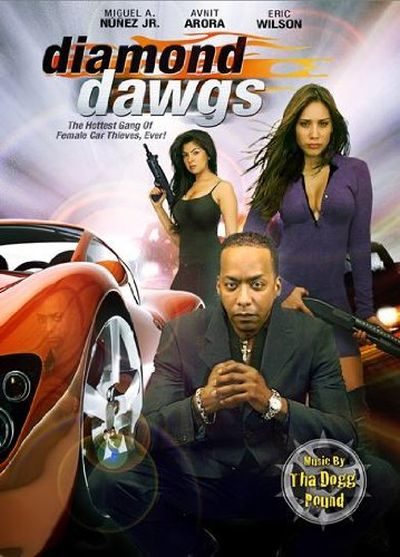 It’s hard to believe a film rated two stars exceeded expectations, but when I saw this had scored just 1.7 out of ten on the IMDb, I was braced for something much worse. I mean, cross off the friends of the cast and crew who scored it a “10”, and 72% of voters have given it the lowest mark possible. Make no mistake, this isn’t great. It’s not even good. But this is not quite as irredeemably bad as that score would imply.
It’s hard to believe a film rated two stars exceeded expectations, but when I saw this had scored just 1.7 out of ten on the IMDb, I was braced for something much worse. I mean, cross off the friends of the cast and crew who scored it a “10”, and 72% of voters have given it the lowest mark possible. Make no mistake, this isn’t great. It’s not even good. But this is not quite as irredeemably bad as that score would imply.